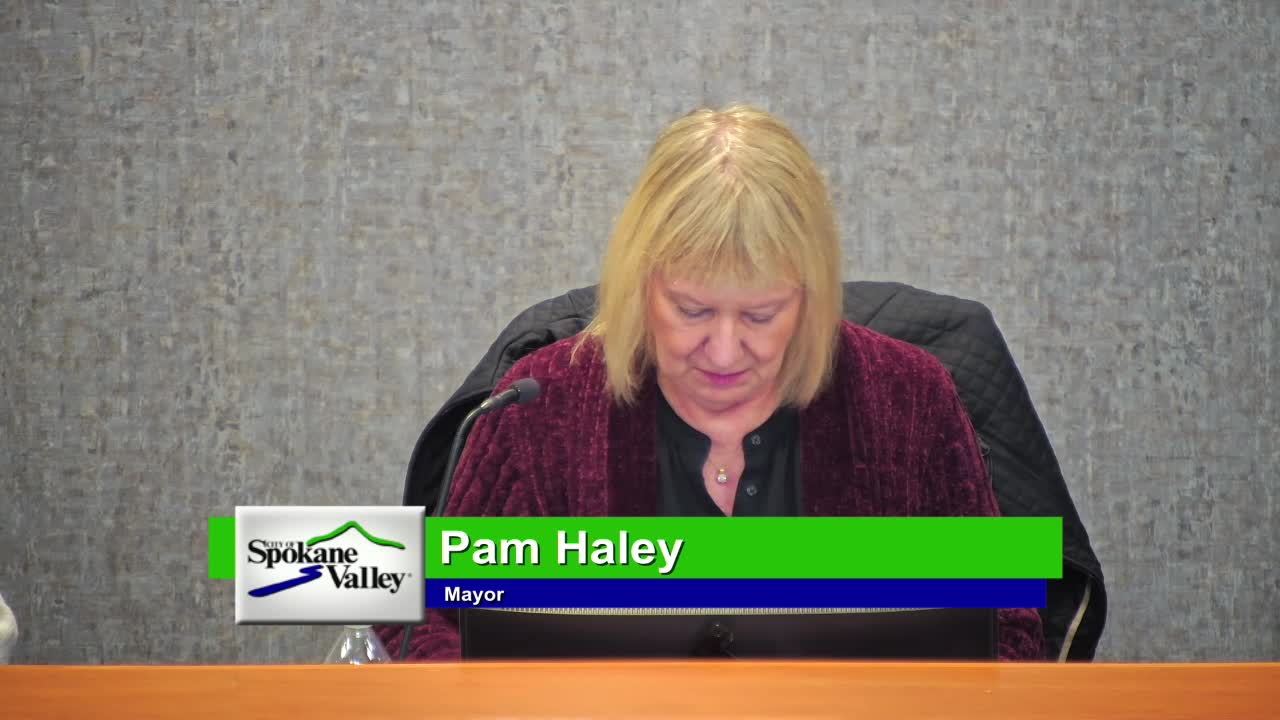Spokane Valley holds second public hearing on 2026 budget; council and public probe reserves, revenues and line items
Get AI-powered insights, summaries, and transcripts
Subscribe
Summary
At a second public hearing on the 2026 budget, city finance staff told the council the draft budget holds a balanced general fund and a reserve above the city's 50% target; council members and commenters pressed for clarity on recurring vs. one-time spending, use of fund balance, and several specific line items.
Spokane Valley held its second public hearing on the proposed 2026 city budget Tuesday night as Finance Director Chelsea Walls presented updated revenue and expenditure estimates and answered council questions about line-item decisions and reserve levels.
Walls said the city is budgeting across 31 funds with total appropriations of about $148.4 million and estimated capital expenditures of about $47.9 million, partially offset by roughly $46.1 million in capital grants. She described the general fund recurring revenue forecast as roughly $68.6 million and recurring expenditures of about $68.5 million, producing a narrow recurring surplus in the draft. Walls told the council the general fund reserve balance is projected at about $42.3 million, which she said represented about 61.8% of recurring expenditures under the current estimates.
The figures and some line items prompted detailed questioning from council members and members of the public. Council Member Merkel asked why certain items now recorded as recurring (for example, a $25,000 Washington, D.C., trip and about $200,000 for contract attorneys) could not be moved to nonrecurring status so the city could use recurring revenue for additional police officers. Walls and City Manager John Homan responded that many of those items had been budgeted as ongoing by previous council direction and that changing them would amount to a change in service level requiring a council decision.
Council discussion repeatedly returned to how much of the city's ending fund balance is a deliberate reserve versus available cash that could be used for hiring or one-time projects. Council members expressed differing views: Merkel argued the council could reclassify some recurring items and draw down a higher reserve to free cash for priorities such as sworn officers; Deputy Mayor Hatenberg and other council members defended the city's conservative reserve posture and staff's budgeting practices, saying higher reserves help smooth revenue volatility and avoid future cuts.
Public commenters raised questions about particular revenue sources and budget choices. A community member, identified in the record as Michael, asked why Spokane Valley residents pay a vehicle tabs fee that benefits road users statewide. Kendra Rojas asked for clearer public explanations of city fund numbers (for example, Fund 101) and whether discretionary trips could be placed on a 'wish list.
Walls noted a couple of assumptions in the draft that, if they do not occur, would force budget adjustments: a lodging-tax grant application of $257,000 for a local cross-country course and planned changes to the city's permitting fees. She also said FTEs for 2026 are unchanged from the adopted 2025 level at 118.25 and that four positions remain unfunded.
Walls and Homan outlined timeline next steps: the council will hear a first reading of the budget and related amendment items in coming meetings and is scheduled to adopt the 2026 budget on Dec. 9. Walls said there will be additional presentations and that the council will consider a separate proposed property-tax ordinance at upcoming hearings.
Why it matters: The budget determines recurring service levels, including public safety, streets and economic development programs. The council's decisions about which costs are recurring versus one-time and how much of the ending fund balance to keep in reserve will determine whether the city can add personnel or maintain current service levels without new revenue.
Council members and staff said they will return with additional detail on several points raised, including the composition and purpose of numbered funds; staff committed to bring clarifying slides at future hearings. The council signaled it will continue budget debate over the next few meetings and that the community will have additional opportunities to comment before adoption.
Ending note: Walls said the budget currently does not include the 1% property-tax increase allowed by state law; staff will return with a property-tax ordinance for council consideration in November.
